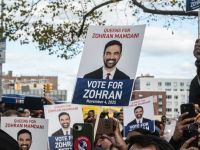The Philippine military said Monday it is relentlessly pursuing Abu Sayyaf kidnappers in the country's south but seemed no closer to finding the 22 local and foreign hostages on the third day of a major assault.
And reports filtering out of Jolo Island, the scene of the fighting, said evacuees fleeing the violence were unable to get food or medical aid because of a military cordon set up around Jolo's capital town.
"We are pursuing operations relentlessly and we're strictly adhering to instructions of the president as far as the conduct of operations is concerned," said military spokesman, Brigadier-General Generoso Senga.
President Joseph Estrada, declaring that "enough is enough", ordered the air and ground assault on Jolo Saturday after months of frustration and humiliation at the hands of Muslim rebel kidnappers.
He has ordered troops to "destroy" them within a week and rescue the hostages. But Senga declined to comment on the progress, citing operational reasons.
"Operations are still ongoing, operational details can't be disclosed for obvious reasons," he said. "There are still no indications that the hostages have been harmed."
Military sources said two more Abu Sayyaf fighters were killed in a clash Monday, bringing the total to eight. Twenty had been captured while four soldiers and three policemen had been wounded.
An AFP witnessed a cargo plane being flown into Zamboanga City, Monday, carrying about a hundred evacuees from Jolo as well as three wounded policemen, one was in a serious condition.
Defence Secretary Orlando Mercado said earlier that four civilians including a child aged 11 had been killed.
"The ground assault is still ongoing. The assessment by the military is that it won't take a week," Mercado said.
A retired military commander in the south, Delfin Castro, warned that Estrada's order for results within a week on the jungle-clad island of 897 square kilometers (345 square miles) was "very optimistic." Three months or more was realistic, Castro said.
The strike rode the crest of a wave of anger at a group which armed forces Chief of Staff General Angelo Reyes said "has caused so much problems and embarrassment to the whole nation."
But it failed to give a much-anticipated boost to the stock market and the peso closed at a record low of 45.82 to the dollar, partly on uncertainty over the outcome of the operation.
Spokesman Senga, giving a briefing after Reyes visited Jolo Monday, said the Abu Sayyaf had split into groups and dispersed at the start of the attack by 4,000 troops, planes and helicopters.
Island residents said Jolo town itself was peaceful while the fighting appeared to be confined to the towns of Talipao, Maimbung, Patikul and Indanan, alleged lairs of the Abu Sayyaf a few kilometers (miles) outside the capital.
Military airstrikes had ceased but artillery fire could still be heard, they said.
Evacuees who could not get into the town because of the military cordon were reported to be running low on food and could not get doctors to treat their wounded, forcing them to rely on village herbalists.
A senior army official earlier told AFP at least 70 Abu Sayyaf gunmen evaded a naval blockade and escaped to nearby Basilan island.
Other senior officials say they believe the gunmen are still on Jolo with their captives -- an American, two Frenchmen, three Malaysians and 16 Filipinos.
Cargo transport to the island will be allowed to resume Tuesday, Senga said, and public phones -- switched off as part of a news blackout - would be reconnected.
Reyes reportedly said Jolo residents could use ferries again but they would be screened before being permitted to leave the island.
Abdusakar Tan, governor of Sulu province, which includes Jolo island, disputed a newspaper report of 600 casualties in the initial attack, saying there were only four civilians confined in hospitals.
He made no mention of any civilian deaths.
Tan said up to 1,000 families or roughly 4,000 to 5,000 people had fled their homes.
Estrada has said the safety of the hostages is "paramount" but France still strongly objects to the attack.
The crisis began on April 23 with the abduction of 21 people from a resort on Sipadan island in neighboring Malaysia.
All but one of those captives has been released but the Abu Sayyaf has been replenishing its pool of hostages even while negotiating with the government -- ZAMBOANGA, Philippines (AFP)
© 2000 Al Bawaba (www.albawaba.com)







